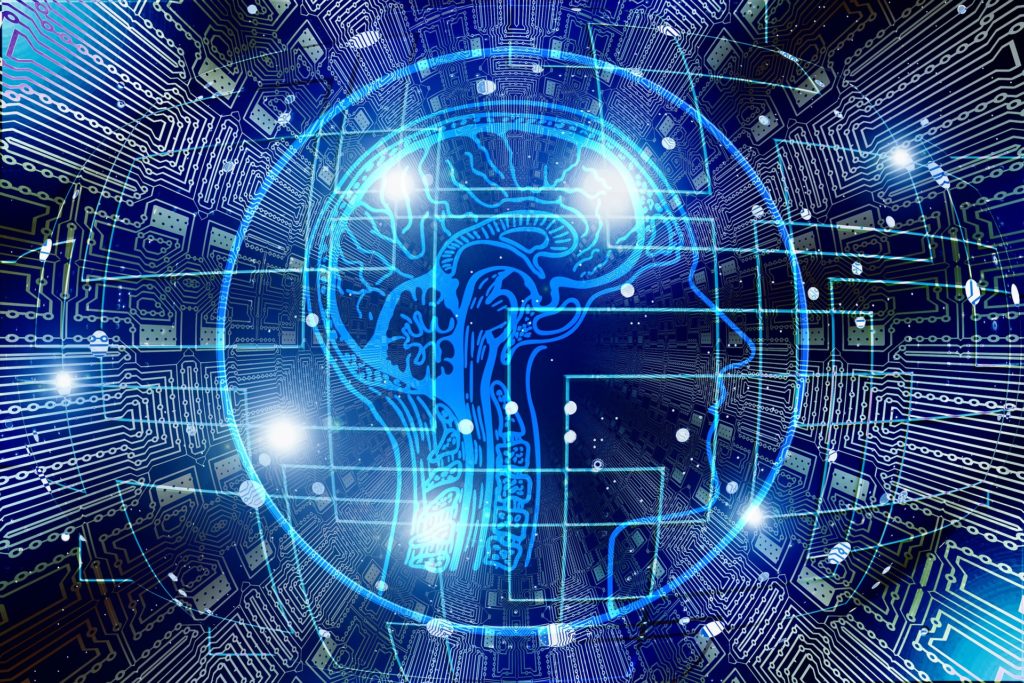What Do People Trust More: Human Feedback or Algorithmic Feedback?

If you’ve been following our blog, you’ve seen us talk about how, with today’s tight job market and even tighter margins, AI-driven leadership development programs are the solution businesses need to identify, nurture, and retain top talent. While traditional coaching is too expensive and too subjective, and while traditional leadership development programs are too generic and suffer from the forgetting curve, AI-driven programs offer a “Goldilocks solution” providing personalized training and quantifiable, lasting results without breaking the bank. In other words, it’s just right.
There’s just one sticking point: traditionally, we humans have been reluctant to trust artificial intelligence over human expertise.
As early as the 1950s, research has been documenting instances in which algorithms are outperforming humans, according to Harvard Business Review. They’ve beat doctors at predicting cancer survival, heart attacks, and disease severity. They predict parolee recidivism better than parole boards, and they know better than loan officers whether a company is liable to go bankrupt.
These early findings were met with skepticism, as our egos prevented us from believing that a machine or a mathematical formula could outpace human expertise. And that skepticism has bled into present day AI development, as most companies that play in the world of algorithms work hard to humanize them. We give names to our AI-driven personal assistants, we put faces on bots, and we highlight the human touch wherever possible.
But is all that effort really necessary? The same HBR article reported research on human perceptions of AI that yielded one fascinating result:
Today, humans are more likely to trust algorithms than other humans.
The study, conducted by researchers Jennifer Logg and Julia Minson from Harvard and Don Moor from the Haas School of Business, found that, rather than distrusting algorithms, people now show “algorithm appreciation,” giving more credence to machine-driven advice than the same advice from an old-fashioned, human expert.
Interestingly enough, the researchers conducted a second study to test whether the perception that humans mistrust algorithms was still alive and well. They asked 119 human judgment researchers to predict how much the original study participants would listen to humans versus algorithms, and the researchers predicted that people would be more likely to trust human advice.
The moral? We’re hanging onto an outdated perception that humans—our clients—will be turned off by the mere mention of AI-driven decision-making or guidance when, in reality, putting our algorithms center stage may be to our benefit.
“It may be not be necessary to invest in emphasizing the human element of a process wholly or partially driven by algorithms. In fact, the more elaborate the artifice, the more customers may feel deceived when learning they were actually guided by an algorithm.”
AI-Driven Leadership Coaching
Applying these findings to Quantified’s leadership coaching work, let’s take a look at the ways artificial intelligence outpaces traditional coaches when it comes to leadership development:
1. It Eliminates Subjectivity
While a traditional coach can tell a client she did better (or worse) this time around, and even point to some reasons, the coach’s expert opinion is still just that: an opinion. And what’s more, it’s limited by his own experience and framework. But for a leader who relies on statistics, research, and facts to make critical business decisions, data-driven feedback—especially when it’s based on millions of data points about other world-class leaders’ skills and the outcomes they achieved—is much more compelling. And so is the ability to quantitatively track improvement, charting skills and measuring every peak and valley along the improvement journey.
2. It’s Less Emotional
In the introduction to Thanks for the Feedback, Sheila Heen and Douglas stone note that, while giving feedback is never easy, receiving it is just as difficult:
“The feedback is unfair or off base. It’s poorly timed and even more poorly delivered. And it’s not clear why the giver thinks they are qualified to offer an opinion; they may be the boss, but they don’t really understand what we do or the constraints we’re under. We’re left feeling underappreciated, demotivated, and more than a little indignant.”
In short, we take it personally, and rather than implement it—or even consider it—we throw up our defenses. But when feedback comes from impersonal data rather than a judgmental human, the emotion-free analysis opens the door to a “safe space” for a more productive interaction—and more significant, lasting improvement.
3. It’s Scalable for Every Leader
Finally, AI-driven training isn’t nearly as expensive as traditional, one-on-one coaching. With automated learning, organizations who couldn’t afford to train anyone but the highest-level leaders can now offer world-class development opportunities to every leader—and potential leader—within the company.
Effective leadership development is critical for every organization’s success in today’s business landscape. But traditionally, the price of human coaching, the ineffectiveness of most L&D programs, and the stigma against algorithm-driven decision-making gave leaders a bevy of excuses to sweep training programs under the rug. But now, with evidence that not only does AI-driven training outperform traditional coaching, but that folks are more willing than ever to accept advice from algorithms over humans, there’s no reason not to offer world-class coaching to every employee.